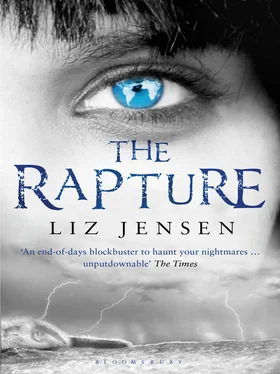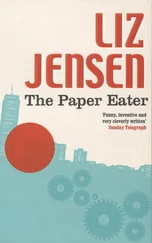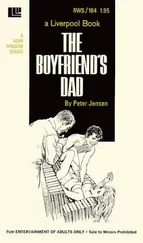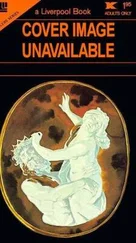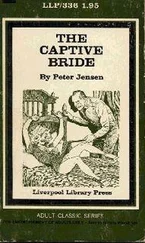‘There’s a photo album on the lower shelf in the living-room. Fetch it and I’ll show you.’
There are pictures of my parents, and of Pierre and his wife and the twins as babies, and then older, and then Dad in the nursing home with one of the carers, and some others of me and Alex. I can see the physicist struggling with what to say when he sees me in the world of Before. I was a woman then. Happy, and upright and smiling, with a man’s arms around me.
‘Well, you were never tall,’ he comments. I smile. ‘Who’s the lucky guy?’
‘Oh, that’s all over,’ I say, trying to sound dismissive. But I fail.
‘Were you married?’
Through a gap in the trellis, I see an Ikea delivery van lumber past. I imagine a child’s bunk bed and the diagram of how to assemble it with an Allen key. Someone’s asking for trouble. ‘I wasn’t. But he was.’ A white van. Then a motorcycle. And then a Volkswagen Passat. ‘Alex had a Saab. They’re supposed to be very safe. Dark blue. There was a child seat in the back, with a little built-in rattle gizmo. He had two kids. If you were kissing in the car and you switched on the CD player by accident, out came "The Wheels on the Bus go Round and Round".’
‘Oh.’
‘He’d take off his wedding ring when we were in bed. Very respectful. But she was still there like an invisible presence. There was this band where the skin was paler.’
You get so used to editing out the painful stuff. There are still things I’m not telling the physicist, but this is enough for now.
How can I tell him what I’m not even telling myself? He’s looking at me intently, as though he’s aware I am leaving out something crucial. As though Bethany has told him—
Told him what?
Alex wasn’t my usual type at all, I say quickly, determined not to let my paranoia take charge. He was an entrepreneur, with a chain of clothes shops all over the country. We met in the casino he part-owned. He had a passion for poker. My friend Lily dragged me there because she was in between marriages, and there was a croupier she fancied. Well. One thing led to another. We all make mistakes. You can’t make an omelette, etcetera. ‘Only at the end of it all, there was no omelette,’ I finish lamely, appalled at my own cliche. Broken eggs, empty shells, messes on floors: why can’t I just tell the plain truth? Because I can’t. I know the next question, the one that usually goes unasked. To get this excruciating stage over with, I answer it anyway.
‘He was driving. The weather was terrible. I have no memory of how it happened. But we were arguing at the time.’ This is a mixture of lies and truth, fact and wishful thinking. I have rewritten this story in my head a thousand times. ‘We wanted a life together but he just couldn’t — bring himself to do what was needed.’ He had a problem with commitment . How I despise that phrase women use to explain why men won’t marry them. The phrase that says, it’s not me, it’s him . Another phrase from women’s magazines: he wanted to have his cake and eat it.
‘I loved him. But inevitably, given the situation, I also hated him.’
I don’t tell him the rest. About the impossibility of it all, and about why I was screaming at Alex when he rounded the corner and why I was still screaming at him — shamefully, uncontrollably, like a woman possessed — when he misjudged the turn. About the slow and quiet way he died.
I don’t tell him because I don’t tell myself. I’ve been through enough.
‘I used to think about it the whole time.’ Truth.
‘And now?’
‘I’ve cut it down to once a week.’ Lie. I think about him every day. Every single fucking day.
‘Did it make you feel, well, bitter? I mean, not just losing him, but losing — er — having your injuries?’ The physicist is looking at me strangely, as though he knows what I’m not saying. How can I give utterance to the thing I can’t think about, and can’t face, and never will? How can I ever tell anyone?
Finally, to distract us both, I talk about the aftermath of the accident. About my lost month in a coma, and how when I emerged from it into something that passed for consciousness, I discovered myself on an angled bed which they adjusted three times a day like a cooking-spit. The morphine prompted extraordinary, hallucinatory dreams. I was a mountaineer scaling a white cliff a kilometre high, attached by a thicket of pulleys and ropes. I was the commander of a tiny, high-speed submarine, zooming beneath the quilt of the sea, negotiating abysses and sharks and whirlpools and giant octopuses like a manic conquistador. Sometimes, surreally, I’d see people in hospital gowns standing upright and gliding about the ward like ghosts. Later I learned these were other patients in standup wheelchairs. The drugs ensured that most explanations slid past me. ‘As soon as you’re ready for some physio, we’ll put you on a tilt-table to help your heart work harder,’ they said one day. Medical scaffolding, to coax my broken body into mustering muscular life. Could my heart really work any harder? Apparently yes, it would have to, because one day a destroyed woman came to see me. She stood there for a long time. She didn’t say a word. I knew who she was. I’d seen photos. She scrutinised me as if I were a pitiful and disgusting and shameful specimen and then she turned and walked away. She could have come and killed me but she didn’t. She could see there was no need. That leaving me like this was crueller because I was my own punishment. She was a sociologist, so perhaps she could name the category I’d fit into as a woman with no man, no baby, no feeling below the waist, and no imaginable future. I never saw her again. The morphine made it unreal, like a dream with no beginning or end. But a routine began to emerge. I forgot and remembered things selectively. You can only take so much pain. Every day, three times a day for six weeks, I was pitched at a new angle, to relieve the pressure on my shattered spine and pelvis.
‘It’s funny, but I was in that spinal injuries unit for at least ten days before I realised I wasn’t alone. I thought the other voices I heard were in my head. It turned out there were ten of us. Nine other broken people all sandwiched on their beds at different angles. Or strapped into standing frames. I was the only woman.’
The others were young, mostly: three motorcycle accident victims, a builder who had fallen off a ladder, a man who had jumped off the fourth floor of a block of flats in a suicide attempt. A boy — he said he was just sixteen — had the strangest voice: a rasping noise with each breath emerging heavily, as though at great cost. Later I learned he was the worst off of all of us. He was paralysed from the neck, and on a ventilator. The wheezing that accompanied his speech came from the machine.
‘People came and went. The suicide died one night, so at least his wish came true.’
We were all very drugged, in the wake of our accidents, so there wasn’t a great deal of talking. Instead, there was a lot of dreaming. ‘I travelled endlessly on that bed, in my head, just taking in what had happened to Alex. I travelled to the moon. I travelled beyond it. In an odd way, it was liberating, being just a brain, suspended in space. There was no panic at that stage, because no one had told me I’d never walk again.’
‘They wanted to spare you?’
‘No, it wasn’t that. It was because nobody knew. I was in spinal shock. The body just closes down. It can be months before you know what you’re stuck with. I was drugged, and I was calm. It was there that I first learned how to disappear into myself. How to squash and stretch time.’
He looks fascinated, puzzled, a little excited. Horrified, too, by the image of Hell I have sketched. I wonder how much he’s understanding. Can anyone who hasn’t experienced this imagine what it’s like, to watch whole hours spin by in seconds, or feel seconds loop into eternity? To go on long elaborate voyages of the imagination in which you can become whole new people? To realise that there’s nothing you can’t do, nobody you can’t be, if you allow your mind to float? I tell the physicist that it was towards the end of that time that I learned the worst of what had happened to me, and what it meant for my future. I do not tell him that it was then, in those weeks, that I made the decision to eradicate Alex — and all that went with him: the wife, the kids, their complex family grief — from my mind. There are limits to human endurance. Something opened up inside me, a new skill that unfurled like a flower, there on that torture-bed. I relived my whole life, sometimes in the most elaborate detail, but I also imagined lives that had gone and lives that might have been.
Читать дальше
